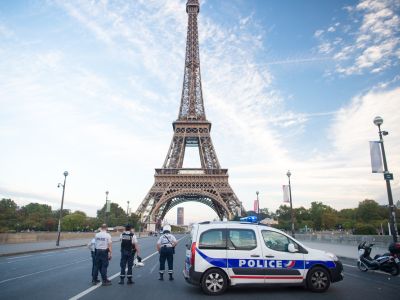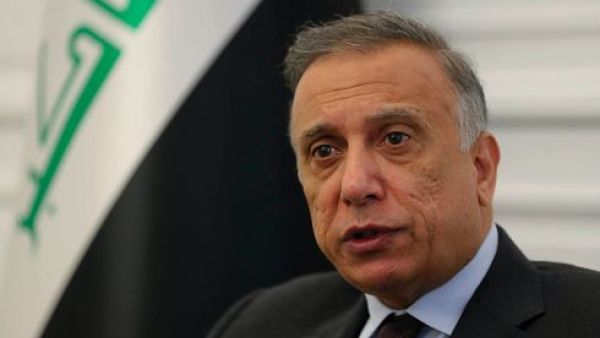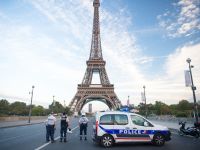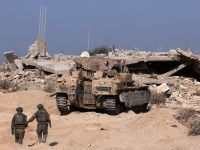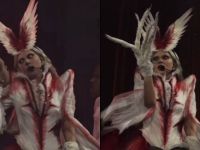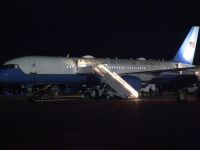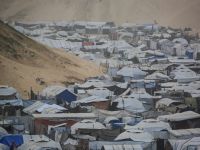Political sources in Baghdad revealed that Iraqi Prime Minister Mustafa al-Kadhimi turned down an Iranian request to convey a message to the United States, where he is currently on a visit.
Kadhimi arrived in the United States Tuesday and is meeting with a senior US officials, including Secretary of State Mike Pompeo and President Donald Trump, to discuss security, the economy, health and other issues.
The Iranian request came from the commander of the Quds Force of the Islamic Revolutionary Guard Corps (IRGC), Esmail Qaani, who met with Kadhimi just before the latter headed out to the United States.
According to Arab Weekly sources, the Iraqi PM turned down Qaani's request to convey a message from Iranian Supreme Leader Ayatollah Ali Khamenei to Trump expressing Tehran's willingness to cooperate and discuss all disputed issues between the two countries in the land of Iraq.
Sources said Kadhimi told Qaani, who paid a secret visit to Baghdad just for this purpose, that he was “not a postman” and that “Iran can deliver its messages to the United States by itself.”
Sources close to Kadhimi said the US administration usually would expect messages from Iran to be conveyed through the Iraqi PM, but that won’t happen this time.
Kadhimi's team believes that if the Iraqi prime minister were to function as the conveyor of Iranian messages to Washington, it would weaken his position in political negotiations with the US and may harm the general framework of his visit to the United States, on which Baghdad is relying tremendously.
The Iraqi side wants to avoid giving the impression that Kadhimi is just an Iraqi mediator between Washington and Tehran.
The Iraqi PM met with Qaani against the background of renewed missile attacks on US interests in Iraq. The attacks were presumed to have been perpetrated by Iraqi militias taking orders from the IRGC.
Over the past two weeks alone, there have been 15 missile attacks against camps, diplomatic sites and Iraqi compounds hosting American soldiers and civilians.
The last of these missiles fell on Baghdad airport, a very short time after Kadhimi’s plane took off heading for the United States, in the first visit of an Iraqi official to the White House since 2017.
A statement was published by the so-called Second 1920 Revolution Brigades and was circulated by pro-Iranian accounts on Telegram, after Qais Khazali, one of the leaders of the Popular Mobilisation Forces (PMF), equated his men with the real men of the 1920 Revolution Brigades.
Another group calling itself The Rebel League also circulated footage taken by a drone of the US embassy inside the fortified Green Zone and threatened to bomb it.
Ramzi Mardini, a researcher at the Pearson Institute at the University of Chicago, suggested that the individuals who form the new militias committed to fighting the American presence in Iraq had come from pre-existing armed factions that make up the PMF.
“They are just working under new banners to hide and protect the leadership of the existing armed groups from facing possible retaliation measures,” he said, referring to the PMF factions linked to Iran.
Circles close to Kadhimi revealed that the Iraqi delegation in Washington will ask the United States for economic support to develop infrastructure in specific areas, and will also request American support to help contain a new wave of severe COVID-19 outbreaks among the Iraqi population.
Kadhimi’s team realises that without the emergence of a strong, confident and bold Iraqi prime minister, the latter will not be able to gain the trust or support of the US administration, especially during the current conditions in Iraq where there is a great need for support in the fields of economy and public health.
Kadhimi will also be discussing the issue of US military presence in Iraq. Most analysts, however, say deciding on the issue will most likely be postponed until a new government takes over following the supposed elections of the summer of 2021.
Observers believe Kadhimi would be able to secure broad American support during his current visit to the United States and his upcoming meeting with Trump on Thursday.
They were basing their estimates on the fact that this visit has been arranged to be an effective part of Trump’s election campaign for a second term in office.
Trump wants to be able to tell American voters that Iraq is an ally of the United States, not of Iran, and that Kadhimi is in Washington to confirm this. The US President will aim to use this event to help reshape his image inside the US after suffering major damage over the past few months, and despite the lack of interest by voters in most foreign policy issues.
This article has been adapted from its original source.


